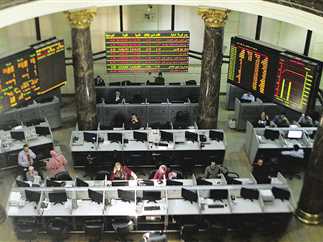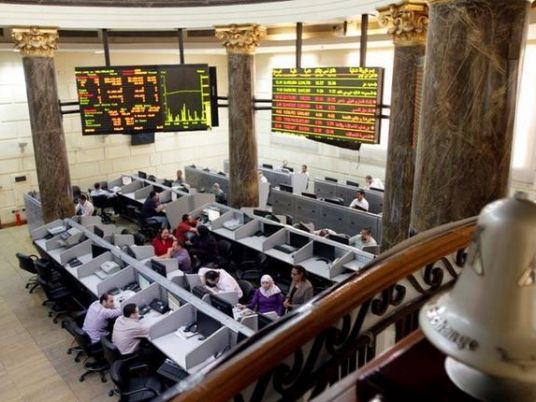Egypt’s stock market lost LE29.3 billion of total market capitalization on Sunday, the third largest single-day drop since January 2011, on the back of renewed street clashes and heightened political uncertainty.
The almost 10 percent decline in the main index would have likely been higher if not for cautionary measures in place that halted trading for 30 minutes. Stocks continued their downward slide when trading resumed.
Hesham Tawfiq, a board member of the Egyptian Stock Exchange, describes the day’s performance amid the tense political backdrop as “catastrophic,” predicting a further 5–6 percent drop on Monday.
A faceoff between security forces and protesters in the streets surrounding Tahrir Square entered its seventh day as the fury of political and civil forces escalated against President Mohamed Morsy’s constitutional declaration announced Thursday evening.
“The president’s constitutional declaration widens the rift between the two sides of Egypt’s spectrum and the latest statement deepens the conflict,” Tawfiq adds.
Late Sunday, the president’s office, in a statement carried by Reuters, said it was committed to engaging "all political forces" to reach common ground on the constitution and stressed the "temporary nature" of Morsy’s sweeping powers.
"This declaration is deemed necessary in order to hold accountable those responsible for corruption as well as other crimes during the previous regime and the transitional period," the statement read.
The market earlier reacted to the flurry of news with heavy sales, mostly from Egyptian investors, causing the sharp decline. Foreign investors, however, were net buyers.
The largest single-day loss occurred on 26 January 2011, when the market lost LE40 billion the day after the start of last year’s revolt against Hosni Mubarak’s regime.
Later on 22 March, the market lost LE29.5 billion when it reopened after a controversial two-month closure spurred by the frenzied outflow of cash from the market during the 18-day uprising.
Market insiders, however, do not expect officials to close the market despite the day’s sizable losses.
“We’ve learned from our mistake and we know now that closing the market has a more adverse effect on investor sentiment,” an insider at the Egyptian Stock Exchange tells Egypt Independent.
Tawfiq confirms this, saying there is a decision from the board of directors not to close the market, adding, “It’s wiser to keep the market open, let it trade freely and deal with the consequences, whether positive or negative.”
Sunday was the fifth biggest loss for the benchmark EGX 30 index, which dropped 9.95 percent to 4,917 points, dipping worryingly below the 5,000 mark, which it had managed to climb above twice this year.
Egyptians were net sellers, at LE87 million, while Arab and foreign investors were net buyers at LE41 million and LE45 million, respectively.
Stocks in the financial services sector were hardest hit, falling 22 percent, followed by telecoms, which fell 20 percent.
Tawfiq had earlier told Al-Masry Al-Youm that he expects Egypt to declare bankruptcy in three months’ time if serious measures are not taken to rescue the economy.
Egypt’s stock market is still one of the best performing in the region this year, with its main index up 35.8 percent over the past year.
However, it remains vulnerable to fluctuations driven by political turbulence. After making significant gains at the start of 2012, it took a nosedive in June during the tumultuous presidential election.
Since Morsy’s time in office, Tawfiq says the business community and investors have been waiting for a clear economic program, and adds that to date, “No one has yet seen the outline of their Renaissance Project.”
Asked whether business players have been privy to the economic program presented to the International Monetary Fund delegation last week, Tawfiq says, “No one has seen it,” and adds that it is “important to engage the public honestly and with transparency first.”
On Tuesday of last week, Egypt reached a preliminary agreement with the IMF, but disbursement of the US$4.8 billion loan is pending a final approval in mid-December.
As things currently stand, Morsy is quickly losing political leverage at home.
“Everyone rejects him expanding his powers and immunizing all of his decisions, including the business community — even the Prophet did not protect all of his decisions this way,” Tawfiq says.




